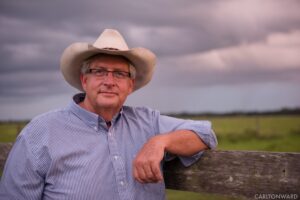
Published in The Invading Sea
by Jim Strickland, March 3, 2021
I consider myself blessed to live and work as a rancher in Florida. As a caretaker of the land, I have both the privilege and the obligation to protect the habitat and wildlife on our ranchlands.
Florida ranches are part of the solution to protect Florida’s environment. Ranchers engage in conservation practices that maintain grasslands, healthy soils, and healthy watersheds. These practices also have a role in combating the effects of climate change.
Rotational grazing, maintaining appropriate cattle herd sizes and managing for native habitat reduce greenhouse gas emissions and sequester carbon. Cattle ranching in Florida protects the environment, maintains rural landscapes, and supports the Florida agricultural economy.

But Florida ranches are in danger of being lost as Florida grows by about 300,000 people a year. This growth results in the conversion of thousands of acres of ranches every year.
So, managing ranches for greater conservation and environmental benefits is important, but offering incentives to protect ranches from land conversion is essential as well. Once these ranchlands are converted to subdivisions and shopping malls, we forever lose the environmental values they provide.
Ranchers are committed to protecting Florida’s wildlife and water while also helping to address climate change. Many ranchers are working with conservation groups and state and federal government to restore wetlands, provide wildlife habitat and corridors, and to help sequester carbon in both wetland soils and grasslands.
Ranches provide important habitat for protected wildlife species such as the Florida panther. Ranches are also critical to protecting wildlife corridors, another critical strategy for addressing climate change. Our ranches protect wetlands, offer opportunities to restore additional wetlands, and provide grasslands that can help store carbon and reduce greenhouse gas emissions.
My colleagues have for years collaborated with University of Florida Institute of Food and Agricultural Sciences experts to make ranching more economically and ecologically sustainable.
In 2021 we’ll mark the 500th anniversary of Ponce de Leon bringing the first cows to what would become our state. We wouldn’t have stayed in business since the 16th century without caring for the land.
We continue this stewardship through a cowboy-scientist alliance with UF/IFAS. Through innovation, we’re constantly improving our efficiency and reducing our environmental footprint. Florida, and the planet, are better off for it.
I am excited by how ranchers continue to be even better at contributing to climate solutions while providing wildlife habitat and protecting watersheds. Let’s all work together to make sure that Florida has the support, programs and funds to protect our ranches and to restore and manage grasslands and other habitat on these ranches to achieve our climate, wildlife, and water conservation goals.
Jim Strickland is the owner of Strickland Ranch and managing partner of Big Red Cattle Company and Blackbeard’s Ranch. He is Co-Chairman of the Florida Climate Smart Agriculture Work Group, sponsored by the University of Florida and Solutions from the Land, and Vice-Chairman of the Florida Conservation Group, an organization that advocates for the protection of Florida’s ranchlands.
“The Invading Sea” is the opinion arm of the Florida Climate Reporting Network, a collaborative of news organizations across the state focusing on the threats posed by the warming climate.
